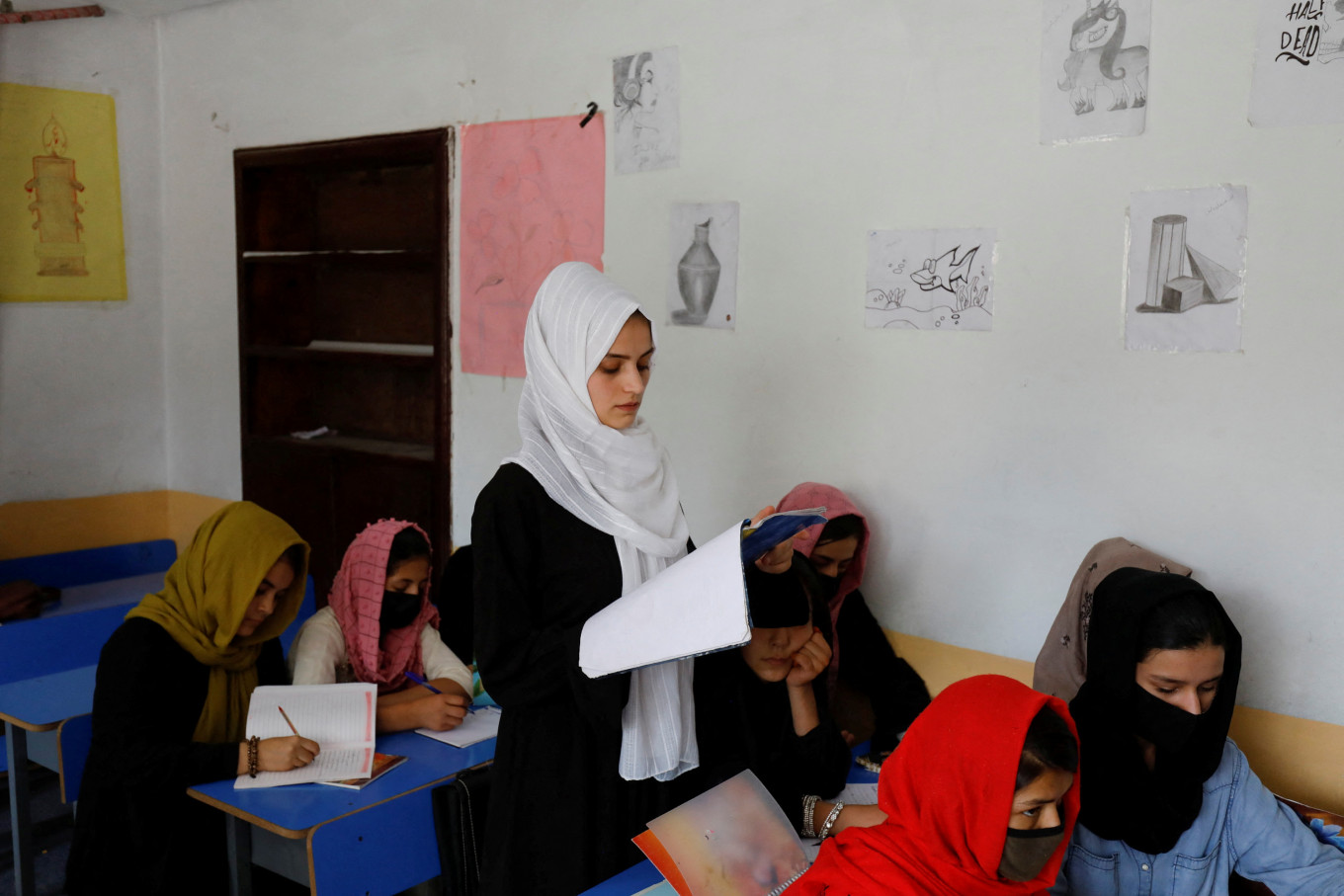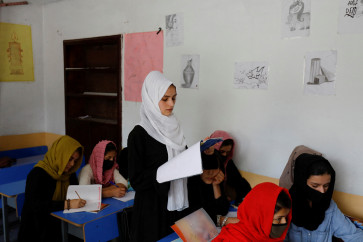Popular Reads
Top Results
Can't find what you're looking for?
View all search resultsPopular Reads
Top Results
Can't find what you're looking for?
View all search resultsA year after Taliban's return, some women fight for lost freedoms
Before the hardline Islamist Taliban movement swept back to power a year ago, the 31-year-old served as a director of policy monitoring at the finance ministry.
Change text size
Gift Premium Articles
to Anyone
Monesa Mubarez is not going to give up the rights she and other Afghan women won during 20 years of Western-backed rule easily.
Before the hardline Islamist Taliban movement swept back to power a year ago, the 31-year-old served as a director of policy monitoring at the finance ministry.
She was one of many women, mostly in big cities, who won freedoms that a former generation could not have dreamed of under the Taliban's previous rule in the late 1990s.
Now Mubarez has no job, after the Taliban's strict interpretation of Islamic law severely limited women's ability to work, required them to dress and act conservatively and closed secondary schools to girls across the country.
Under the new government, there are no women in the cabinet and the Ministry of Women's Affairs was shut down.
"One war ended, but the battle to find a rightful place for Afghan women has started ... we will raise our voice against every injustice until the last breath," said Mubarez, who is among the most prominent campaigners in the capital Kabul.
Despite the risk of beatings and detention by Taliban members patrolling the streets in the weeks after the Western-backed government was toppled, she took part in several protests that broke out, determined to protect her hard-fought rights.



















